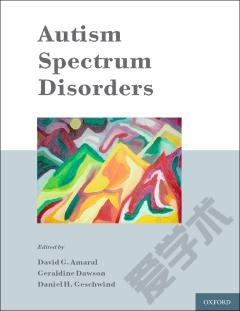Catatonia in Autism Spectrum Disorders
The study of catatonia in Autism Spectrum Disorders is a novel and controversial topic. Catatonia is a motor disorder characterized by stereotypy, rigidity, mutism, and posturing. These motor signs are also characteristic of autism. The interest in the relation between autism and catatonia stems from clinical observations that autistic and catatonic symptoms overlap, that some people with autism develop full-blown catatonia, and that anti-catatonic treatments bring relief in some of those patients. Catatonia in Autism Spectrum Disorders explores the question of if the two syndromes have a common pathophysiology. It also examines whether the successful treatment of catatonia be applied to patients with both autism and catatonia. The book concludes with blueprints for the assessment, treatment, and future study of catatonia in Autism Spectrum Disorders. These blueprints aim to increase early recognition and treatment of catatonia in patients with autism, show the urgency of controlled treatment trials and increased collaborative and interdisciplinary research into the co-occurrence of these two enigmatic disorders. Provides a historical perspective of the concepts of catatonia and autism, as described by old European masters like Bleuler and KalhbaumPresents clinical-epidemiological studies that apply systematic criteria of catatonia in populations with Autism Spectrum DisordersIncludes a review of the importance of psychomotor function for normal and abnormal development
{{comment.content}}








 京公网安备 11010802027623号
京公网安备 11010802027623号